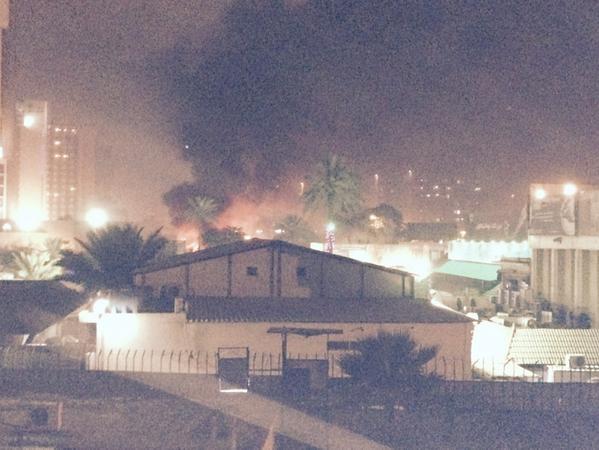If you are a regular reader of ours, you are fully aware of our verbose writings regarding Iraq, America’s involvement in the 2003 invasion, our steadfast support of Peshmerga forces and belief in a free and independent Kurdistan, and our disdain of US contractors pilfering the peoples of Iraq to profit from the spoils of an illegal war.
So it should come as no surprise that we now are horrified to see a growing support for going back into Iraq to “help defeat ISIS.” But we are not alone in our view. In an article published in August, 2014 via The Diplomat, in a piece titled “Iran Didn’t Create ISIS; We Did,” Ben Reynolds write:
“The U.S., Western Europe, and their regional allies in fact bear most of the responsibility for the rise of extremist groups like ISIS. The U.S. invasion of Iraq in 2003, which Britain notably supported, was a strategic disaster. Contrary to speculation at the time, Saddam Hussein’s secular Ba’athist regime prevented Al Qaeda from operating out of Iraq. Iraq had also been supported by the West before the 1991 Gulf War as a counterbalance against the revolutionary Islamic Republic during the Iran-Iraq War. The U.S.-led invasion changed all of that.
The Iraq War toppled Saddam, destabilized the country, and led to a wave of sectarian bloodshed. It also made Iraq a safe haven and recruiting ground for Al Qaeda affiliates. Al Qaeda in Iraq, ISIS’s forerunner, was founded in April 2004. AQI conducted brutal attacks on Shia civilians and mosques in hopes of sparking a broader sectarian conflict. Iran naturally supported Shia militias, who fought extremists like AQI, both to expand its influence in Iraq and protect its Shia comrades. Iran cultivated ties with the Maliki government as well. Over the long term, Iran tried to seize the opportunity to turn Iraq from a strategic counterweight into a strategic ally. The U.S. didn’t do much to stop it.
When the U.S. helped to establish Iraq’s government, it consistently supported Maliki, even going so far as to assist in Maliki’s persecution of dissidents and civil society activists. The U.S. was probably more instrumental than Iran in cementing Maliki’s power in Iraq. Maliki alienated Sunnis in Iraq by cracking down on his opponents and pursuing discriminatory policies in government and the armed forces. When Maliki’s troops stormed Sunni protest camps in 2013, they were armed with U.S.-made weapons. By the time the U.S. and Western Europe finally decided Maliki was enough of a liability to push out of government, fertile ground already existed for an ISIS-led Sunni insurgency in Western Iraq.”
A few points Mr. Reynolds has not mentioned: We believe a war should be paid for before we decide to invade the same country again, just for a different reason. We believe there should be true justification to put our troops in harms way. We do not believe that America’s international role is to be policemen of the world; considering 117 countries have condemned our policies regarding police brutality toward our own citizens, we’re quite certain that one is a non-starter. Has Iraq become our new “elevator button” of stupidity we keep pressing because we want an excuse to wage war, make and sell more weapons and deploy more contractors to operate under the guise of “democracy” and “freedom.”


